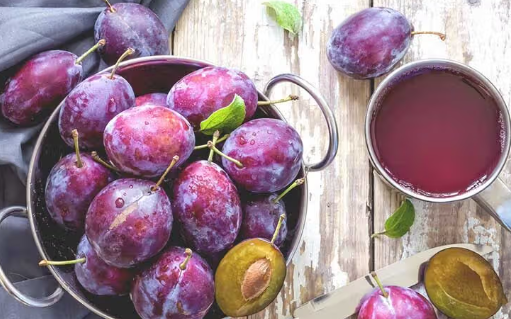Healthy drinks are a source of escape from constipation. Not only do they have instant effects, but are also nutritious for your body. With least chances of side effects, they provide a natural way to treat bloating and ease your bowel movements. But the most important factor about these drinks is its availability in every home. In this way, it comes handy at the right time and is also easy to make.

Table of Contents
The Healthy Drinks
Let us know about the 5 healthy drinks that help you to release tension in the intestines and allow you to poop well. See in detail why they qualify to work, know how to make them, when to consume, and side effects (if any).
Lemon Juice
Lemon Juice topples the list as a widely-known treatment for constipation. They are rich in Vitamin C – a powerful antioxidant. Primarily, it helps you by behaving as a natural laxative to solve stomach problems and ease your defecation. Many of you may have heard of its ‘detox ability’ as it deeply cleanses your bodily systems. The antioxidant properties of lemon enhances the overall digestion that ultimately lessens the problems of constipation.

How To Consume?
Simply add 2-4 tablespoons of lemon juice or squeeze out half a lemon on a 250 ml warm water in the morning on an empty stomach. Lessen the dosage if you are serving it to a child.
Aloe Juice
Aloe Vera has a multitude of benefits for your entire body. But, if we talk specifically of constipation, know that aloe vera juice acts as a natural stool softener. Similar to the lemon juice, it helps to relieve you from the short-term Irritable Bowel Syndrome like bloating, flatulence, abdominal pain, etc. Aloe Vera’s exterior portion has anthraquinones that bear a ‘laxative effect’. It also cleanses the colon, boosts good bacteria in the digestive tract, and is largely safe to consume.
How To Consume?
Drink the aloe vera juice on your empty stomach in the morning. If you are trying it for the first time, limit its intake to only 1 cup. Don’t eat raw aloe vera and it would be best to not buy packaged juice bottles but make your own at home.
Apple Juice
Apple Juice serves a very mild laxative effect. Natural laxatives have fibers, prebiotics, and allow to make rounds to your toilet by fermenting hastily in your stomach. The juice has a high amount of dietary fiber and sorbitol – a type of carbohydrates. It also contains pectin, a soluble fiber that strengthens the bowel function and releases the poop within 20 minutes to an hour of its consumption.

How To Consume?
Wash the ripe and fresh apples properly and peel them. Then, slice them before putting them into your blender. Add 2-3 cups of water and give it a good whirl. Drink it preferably without adding sugar and relish your drink on an empty stomach in the morning.
Prune Juice
Prune Juice is one of the most popular healthy drinks to treat constipation. It contains an apt amount of fiber that completes a tiny chunk of your daily fiber intake. Other nutrients like Vitamin C and iron in the juice eliminates issues relating to a smooth digestion. The insoluble fiber in it stimulates healthy bacteria in the digestive tract enabling a better digestive health, thus reducing symptoms of constipation.

How To Consume?
If you plan to feed your toddler, make a smoothie with prune and coconut milk by blending them together. For a detailed guide, glance at this page.
Coffee
Coffee has a chlorogenic acid that secretes acid in your body and initiates peristalsis movement – a wave-like involuntary muscle motions that triggers the act of defecation. The laxative effect of the coffee enables the gastrocolic reflex that fires up an intense bowel movement.
How To Consume?
Consume it normally as you do. Avoid drinking it as the first thing in the morning.
Potential Side Effects
These healthy drinks are mostly safe to drink under normal conditions but they may propel a side effect if you have an existing illness that contradicts with the nature of these drinks. Talk to your doctor once before consuming them. Drink enough water, and perform regular activities like Surya Namaskar, cardio, walking, etc., to weaken the effects of constipation.



